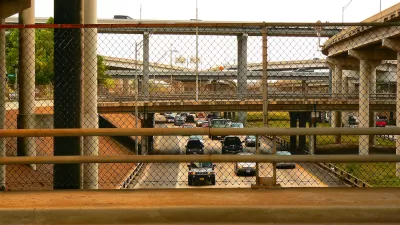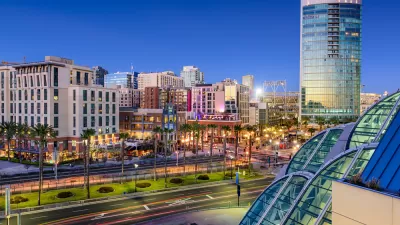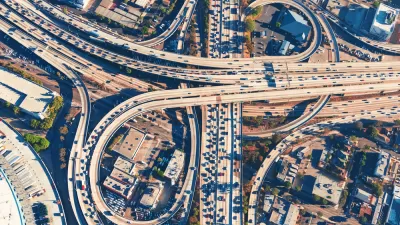Implementing a tax based on miles traveled could disincentivize purchasing more efficient cars and would do little to improve road safety, one columnist argues.

"Americans are increasingly driving hybrid and electric-only cars, reducing emissions and curbing gasoline consumption — accomplishing key goals of the Biden administration," writes Justin B. Hollander. But "[i]mposing a new Vehicle Miles Traveled (VMT) tax," included in the infrastructure bill passed by the Senate last week, "would likely flush away all those prior investments in efficiency and remove much of the incentive for someone to purchase and operate a hybrid or electric-only car."
"Presently, the 18.4 cents (or 24.4 cents for diesel) per gallon gas tax generates over $30 billion annually to help pay for a range of highway, rail and other transit costs," but "critics worry that our increasingly fuel-efficient vehicles, move towards fully electric cars and a decline in overall car use threaten the fiscal future of national transportation funding." In Hollander's view, "the answer for the U.S. DOT is to simply increase the gas tax and get more cars off our roads."
"The gas tax has been shown in numerous research studies to be an effective policy tool that discourages driving and encourages the use of public transit. If the U.S. DOT needs more money, then they ought to seek out congressional support for raising the gas tax — it has not increased since 1993," argues Hollander. "Create a brand new, national-level taxation system based on vehicle miles traveled and you will discourage the use of environmentally friendly cars and do nothing to actually make us safer from the hazards of cars and trucks."
FULL STORY: The Senate's Vehicle Miles Traveled Tax is bad for our health

Alabama: Trump Terminates Settlements for Black Communities Harmed By Raw Sewage
Trump deemed the landmark civil rights agreement “illegal DEI and environmental justice policy.”

Study: Maui’s Plan to Convert Vacation Rentals to Long-Term Housing Could Cause Nearly $1 Billion Economic Loss
The plan would reduce visitor accommodation by 25% resulting in 1,900 jobs lost.

Why Should We Subsidize Public Transportation?
Many public transit agencies face financial stress due to rising costs, declining fare revenue, and declining subsidies. Transit advocates must provide a strong business case for increasing public transit funding.

Wind Energy on the Rise Despite Federal Policy Reversal
The Trump administration is revoking federal support for renewable energy, but demand for new projects continues unabated.

Passengers Flock to Caltrain After Electrification
The new electric trains are running faster and more reliably, leading to strong ridership growth on the Bay Area rail system.

Texas Churches Rally Behind ‘Yes in God’s Back Yard’ Legislation
Religious leaders want the state to reduce zoning regulations to streamline leasing church-owned land to housing developers.
Urban Design for Planners 1: Software Tools
This six-course series explores essential urban design concepts using open source software and equips planners with the tools they need to participate fully in the urban design process.
Planning for Universal Design
Learn the tools for implementing Universal Design in planning regulations.
Caltrans
Smith Gee Studio
Institute for Housing and Urban Development Studies (IHS)
City of Grandview
Harvard GSD Executive Education
Toledo-Lucas County Plan Commissions
Salt Lake City
NYU Wagner Graduate School of Public Service





























